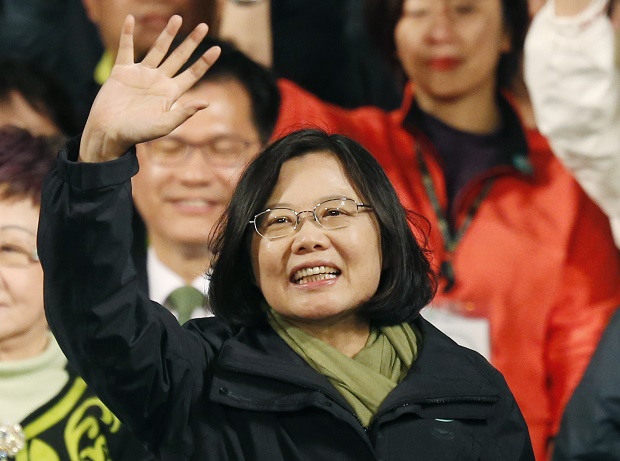Taiwanese president wants more Filipino students studying in Taiwan
MANILA — Although the K-12 program in the Philippines has its share of transitional challenges, Taiwanese educators have welcomed the shift toward a 12-year basic education curriculum as Taiwan eyes more talent exchange with the Philippines and other Southeast Asian countries in the next three years.
Taiwan President Tsai Ing-wen said Taiwan has been eyeing tapping English-speaking Filipino youths for Taiwan’s exchange program, which has made headway with India, Malaysia and Indonesia among the southbound countries.
“The good thing about the Philippines is you speak English well, it’s easier for us to communicate with people from the Philippines,” said President Tsai Ing-wen in a talk with journalists last Friday. She said Taiwan would like to have more youth exchange from the Philippines as it has been doing with India and Indonesia but there must be initial talks with counterparts from both countries to make this happen.
“We will sit down and work out a program, we’ll ask the Ministry of Education and the Ministry of Labor to help and ask private sector to join us to help us bring Filipino youth to the country,” President Tsai said.
Rebecca HC Lan, deputy director general of the Department of International and Cross-strait Education of Taiwan’s Ministry of Education, said the 12-year basic education curriculum would make it easier for Filipino students to integrate in Taiwan’s colleges and universities. She said not many Filipino students have been able to enrol in Taiwan universities because of the differences in the basic education program in the two countries.
Although Taiwan follows the globally competitive 12-year basic education program patterned after the US, the Philippines was stuck with the 10-year basic education many years in the past and had only recently shifted to the controversial K-12 program, designed to make it at par with the other parts of the world. “There used to be not too many students from the Philippines because of the education system there but now that they are shifting towards the new system, we are hoping that more of them will be coming to Taiwan.”
Taiwan has already accommodated a huge number of scholars from India, Malaysia and Indonesia, and plans to expand more as it promotes more exchanges between Taiwan and the southbound countries.
Lan, however, stressed that the scholarship exchange has not just been a one-way, but a two-way affair that would also open opportunities for Taiwanese students to study in Southeast Asia.
Education officials said the Taiwan government has allotted NT$1 billion budget to encourage students in Taiwan to study in Southeast Asia and to offer scholarships for students in India and Southeast Asia to study in Taiwan.
At present, there are only 658 Filipinos enrolled in Taiwan universities, 51 of them in engineering courses; compared to Malaysians, which have reached 16,051. Although the bulk of Taiwan’s foreign enrollees comprise mainly of students from mainland China, educators say most of these students only opt for short-term, non-degree courses.
President Tsai also denied that Taiwan’s new southbound policy has been meant to wean itself from China. It is a matter of reaching out to the country’s closest Asean neighbors for economics and trade, according to Tsai.
Taiwanese educators have said the goal in their department is to increase by 20 per cent the number of students from southbound countries, which include Southeast Asia, South Asia, New Zealand and Australia.
Taiwan considers talent and scholar exchanges one of the four main areas to strengthen ties with its southbound neighbors, as it will strengthen long term people-to-people relationship and will provide an abundant skills pool for its industries. SFM















